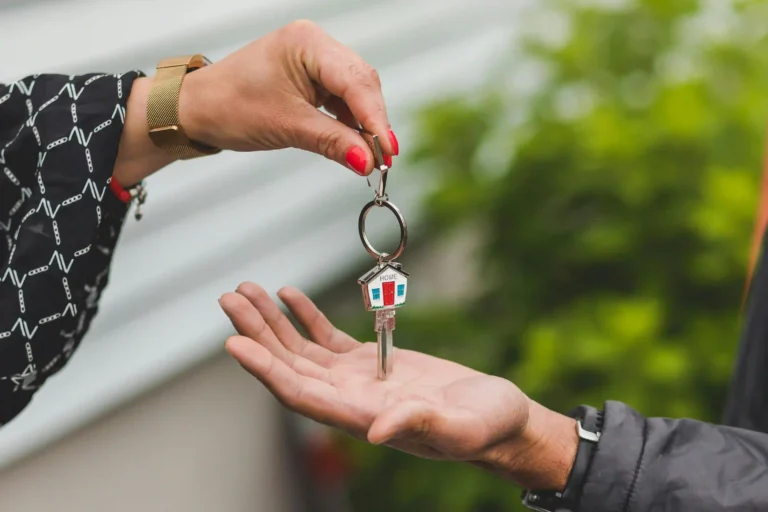
European banks typically require non‑residents to provide a larger down payment, proof of stable income, and solid credit history. While expat home loan non‑resident processes can be more complex, understanding expat mortgage requirements makes approval realistic. Use our checklist of documents for EU expat mortgage and lender insights to prepare confidently.
📌 This article is part: Financial Literacy in the EU: A Guide for Expats in 2025
Content Structure
- Key Differences vs Citizens
- Lenders & Brokers
- What Lenders Look For
- Minimum Requirements
- How to Improve Approval Odds
- Real Expat Experience
- Conclusions
- FAQ
1. Key Differences Between Expat and Citizen Mortgages in Europe

When considering a mortgage for expats in EU in 2025, it’s essential to understand how lending terms differ for non-residents compared to EU citizens. Whether you’re looking at buying property in Spain, France, or Germany, banks apply stricter conditions to expat home loans. Here’s a breakdown of the main differences and what to expect when applying for an expat mortgage in Europe.
🏦 Why Is a Mortgage Without Residency in the EU More Challenging?
Expat or non-resident mortgage applicants face higher risk from the lender’s perspective. Without local credit history or stable EU-based income, you’re considered a higher lending risk. That’s why banks apply:
- Higher down payment requirements
- Slightly higher interest rates
- More complex approval processes
These differences reflect not just financial risk, but also regulatory issues in cross-border lending.
🔑 Key Differences at a Glance
| Feature | EU Citizens | Expats / Non-Residents |
|---|---|---|
| Minimum Down Payment | 10%–20% | 30%–40% (Spain), 25%–35% (France), 30%+ (Germany) |
| Interest Rates | 3.0%–4.2% | 3.8%–5.0% (non-resident mortgage rates) |
| Approval Time | 2–4 weeks | 4–8 weeks |
| Documentation Required | Standard financial docs | Additional proof of income, residency status, tax returns, and translated documents |
| Loan-to-Value (LTV) | Up to 90% | Typically capped at 60%–70% |
🇪🇸🇫🇷🇩🇪 Regional Snapshot: Expat Mortgages in Spain, France, and Germany
Spain:
- Expats often need 35%–40% down payment.
- Many Spanish banks offer mortgages without residency in the EU, but with extra due diligence.
France:
- French lenders are more flexible but may still limit LTV to 70%.
- Approval typically includes translated income documentation.
Germany:
- Germany remains the strictest for non-resident mortgage applicants.
- Some banks offer expat loans but only if you have Euro-denominated income.
📌 Why Consider a Mortgage Without Residency in EU?
If you’re living abroad but planning to invest or relocate to Europe, a mortgage without EU residency allows you to secure property now — but be ready for tighter conditions. Whether you’re applying for a European expat mortgage in 2025 or planning ahead, being prepared with documentation and understanding local policies is key.
Understanding these lending differences is only the first step. Next, let’s explore how lenders and brokers specializing in expat home loans for non-residents can simplify the mortgage journey across Europe.
2. Lenders & Brokers: Who Offers Mortgages for Expats in the EU?
Finding a mortgage for expats in EU can be challenging — but many EU banks serving expats now offer dedicated programs, especially as cross-border property investment has grown in 2025. Whether you’re looking for a mortgage without residency in the EU or a tailored expat home loan as a non-resident, the right lender or broker can simplify the process.
🏦 Major Expat Mortgage Lenders in Europe (2025)
Below is a breakdown of leading non-resident mortgage providers in three major EU markets — Spain, France, and Germany — offering mortgages to foreign nationals and non-residents.
🇪🇸 Top Expat Mortgage Lenders – Spain
| Bank / Broker | Program Name | Key Features |
|---|---|---|
| Banco Sabadell | Hipoteca Extranjeros | Offers loans up to 70% LTV, available for non-residents with euro income |
| CaixaBank | Mortgages for Non-Residents | Bilingual service, accepts income from abroad, flexible repayment terms |
| Mortgage Direct (Broker) | EU-wide | Specializes in expat home loans, negotiates better rates with local banks |
✅ Popular for UK, Dutch, and Scandinavian buyers
✅ Requires minimum 30% down payment
🇫🇷 Top Expat Mortgage Lenders – France
| Bank / Broker | Program Name | Key Features |
|---|---|---|
| BNP Paribas | International Clients Unit | Up to 80% LTV for EU residents, ~70% for non-residents, English-speaking team |
| Crédit Agricole | Expatriate Financing Program | Regional branches support international buyers, may accept rental income |
| Private Rate (Broker) | International Mortgages | Independent broker for expat mortgage Europe 2025, works with 20+ banks |
✅ Offers fixed rates from 3.5% (as of Q2 2025)
✅ Not all banks accept foreign self-employment income
🇩🇪 Top Expat Mortgage Lenders – Germany
| Bank / Broker | Program Name | Key Features |
|---|---|---|
| Deutsche Bank | Internationale Hypotheken | For non-residents with strong income profiles, minimum 30%–40% down |
| Commerzbank | Non-EU Resident Mortgages | Case-by-case review, prefers salaried income in euro |
| Hypofriend (Broker) | Digital Expat Service | Specializes in digital mortgage matching for expats in Germany |
✅ Germany is stricter with European expat mortgage requirements
✅ Local brokers often assist with document translation and notarization
🧑💼 Why Work With an Expat Mortgage Broker?
While banks may have rigid policies, brokers specializing in expat mortgages offer these key advantages:
- Compare offers from multiple non-resident mortgage providers
- Help gather translated documents
- Negotiate better non-resident mortgage rates
- Guide you through European expat mortgage requirements
💡 Tip: Brokers like Mortgage Direct, Hypofriend, and Private Rate often help secure deals faster than applying directly with a bank.
📊 Quick Comparison: Banks vs Brokers for Expat Mortgages
| Criteria | Direct Bank Application | Broker (Specializing in Expats) |
|---|---|---|
| Number of Offers | 1–2 per country | 5–10+ from different banks |
| Speed | Slower (4–8 weeks) | Faster (3–6 weeks) |
| Language Support | Limited | Often multilingual |
| Help with Documentation | Minimal | Full assistance |
| Fee Structure | Free (but less flexible terms) | ~1% broker fee (offset by better terms) |
Now that you know where to apply for an expat mortgage in Europe 2025, the next question is: What exactly do these lenders want to see? Let’s break down European expat mortgage requirements and how to strengthen your application as a non-resident.
3. What Lenders Look For in Expat Mortgage Applications (EU, 2025)
When applying for a mortgage for expats in EU, lenders assess your financial profile differently than they do for citizens. Whether you’re seeking a mortgage without residency in the EU or are a returning EU national living abroad, approval hinges on key underwriting factors.
Let’s explore what banks and non-resident mortgage providers typically require in 2025.
🧾 Key Expat Mortgage Requirements in Europe
| Factor | Why It Matters for EU Banks | Typical Standards for Expats (2025) |
|---|---|---|
| Stable Income | Proves repayment ability | €40,000–€60,000 annual gross income (or equivalent) |
| Employment Status | Risk is lower with long-term employment | Minimum 6–12 months with current employer or contract |
| Debt-to-Income Ratio (DTI) | Evaluates borrowing capacity | Should not exceed 35%–40% total DTI |
| Credit History | Assesses creditworthiness | EU credit history preferred; foreign reports sometimes accepted |
| Residency / Tax Status | Impacts product eligibility and LTV limits | Both EU and non-EU residents accepted with conditions |
✅ 1. Income Verification
Banks place strong emphasis on income verification, especially for expat home loans for non-residents. Expect to provide:
- Last 6–12 months of payslips or self-employment income
- Employment contract (translated if not in English/French/German)
- Tax returns from your country of residence
🔍 Note: Some EU banks accept foreign income only if it’s euro- or USD-denominated.
✅ 2. Employment & Contract Type
Your job stability is a core element. Preferred profiles in 2025 include:
- Permanent full-time employment
- Remote workers with EU-based contracts
- Self-employed with 2+ years of stable revenue
Freelancers and gig workers may face additional scrutiny but can still qualify — especially with brokers specializing in European expat mortgage requirements.
✅ 3. Credit History (EU and Abroad)
A clean credit history with EU banks is ideal, but not always required.
- Lenders in France and Germany may check Schufa or Banque de France equivalents.
- Some banks accept Equifax, Experian, or local reports (e.g., UK credit files).
- Missed payments or high utilization on credit cards abroad may lead to higher interest rates or lower loan-to-value offers.
✅ 4. Debt-to-Income Ratio (DTI)
Most expat mortgage lenders in Europe 2025 calculate your DTI by comparing your monthly debt obligations to your gross monthly income.
- Target DTI: ≤35%
- Some lenders may stretch to 40% if you have strong income and low risk
💡 Example: If you earn €5,000/month, your total monthly housing and loan payments should stay under €1,750.
✅ 5. Residency and Tax Status
While a mortgage without EU residency is possible, it often leads to:
- Lower maximum LTV (typically 60%–70%)
- Need for additional documentation (e.g., tax ID, proof of foreign residence)
- More conservative assessment of future relocation risk
Dual citizens or EU nationals living abroad may get better terms, but still must meet non-resident criteria.
📊 Summary: What Lenders Evaluate
| ✔️ Core Factor | Expats Must Provide / Prove |
|---|---|
| Income Level | Tax returns, payslips, bank statements |
| Job Stability | Permanent role, contract terms |
| Creditworthiness | EU or international credit reports |
| DTI Ratio | Financial overview of income vs. obligations |
| Residency / Legal Status | Passport, visa, or certificate of residence |
Using a broker with experience in expat mortgage Europe 2025 can improve your odds by helping to prequalify based on these factors.
Now that you understand what lenders look for when assessing expat mortgage applications, let’s break down the minimum requirements you need to meet — including credit scores, down payment ranges, and documentation checklists by country.
4. Minimum Requirements for Expat Mortgages in the EU (2025)
Before applying for a mortgage for expats in EU, it’s essential to prepare the correct documentation and meet baseline criteria. Each country — whether it’s Spain, France, or Germany — has its own conditions, but most lenders follow similar standards for expat home loans for non-residents.
In this section, we’ll outline the European expat mortgage requirements, including minimum down payments, credit expectations, and the full list of documents for EU expat mortgages.
🔗 More about the nuances without registration: Mortgage without permanent residence
📑 General Checklist: Documents for EU Expat Mortgage (All Countries)
| Required Document | Purpose |
|---|---|
| Valid passport + visa (if applicable) | Identity and legal status |
| Proof of income (last 6–12 months) | Verifies ability to repay |
| Employment contract or proof of business | Shows job stability |
| Last 2–3 years of tax returns | Confirms declared income |
| Bank statements (3–6 months) | Shows cash flow and savings |
| Credit report (EU or international) | Evaluates creditworthiness |
| Property pre-contract / offer (if any) | Triggers lender pre-approval |
🔗 Detailed list by country: Country-specific documents
💰 Minimum Down Payment by Country (2025)
The minimum down payment for non-residents is higher than for EU citizens. Here’s what to expect:
| Country | Minimum Down Payment (Non-Resident) | Loan-to-Value (Max) | Notes |
|---|---|---|---|
| Spain | 30%–40% | 60%–70% | Some banks require even higher for non-EU buyers |
| France | 25%–35% | Up to 75% | Higher LTV possible for EU expats with strong profiles |
| Germany | 30%–40% | Usually max 60% | Stricter with foreign income or self-employed applicants |
💡 Note: In all cases, you’ll also need an additional 10%–12% of the property value to cover notary fees, taxes, and closing costs.
🏦 Mortgage Paperwork for Non-Residents: By Country
🇪🇸 Spain
- NIE number (tax ID for foreigners)
- Translated documents into Spanish (certified)
- Spanish bank account required before mortgage disbursement
🇫🇷 France
- Documents must be in French or officially translated
- Proof of equity/funds transfer in advance
- May request international tax residency certificate
🇩🇪 Germany
- Documents often required in German or English
- High emphasis on EU-denominated income
- Mortgage broker highly recommended to coordinate bank communication
📊 Quick Overview: Minimum Mortgage Criteria for Expats (2025)
| Requirement | Typical Threshold (EU-wide) |
|---|---|
| Annual Income | €40,000–€60,000+ (or equivalent) |
| DTI Ratio | ≤ 35% (max 40% with strong profile) |
| Credit Score | No official minimum, but clean history is essential |
| Residency | Non-residency accepted, but limits LTV |
| Down Payment | 25%–40% depending on country and profile |
🔍 Related Reading
Looking for flexible options as a foreign buyer? See our full guide on 🔗 Mortgage without permanent residence for non-residents buying in Europe in 2025.
Meeting the minimum expat mortgage requirements in Europe is just the start. In the next section, we’ll show you how to boost your approval chances, get better rates, and stand out as a strong borrower — even if you’re applying for a mortgage without residency in the EU.
5. How to Improve Expat Mortgage Approval Odds in the EU (2025)
Getting approved for a mortgage for expats in EU — especially as a non-resident — can be challenging. However, by taking a few smart steps, you can greatly increase your chances of approval, even if you’re applying for a mortgage without residency in the EU.
Here are concrete strategies that work for both EU and US expats looking to secure an expat home loan as a non-resident in 2025.
✅ 1. Build or Strengthen Your EU Credit History
One of the first things lenders assess is your creditworthiness. While some banks accept international credit reports, a strong EU-based credit history makes a big difference — especially in countries like France and Germany.
How to build credit history:
- Open a local EU bank account and use a secured credit card
- Register with local utilities (e.g., phone, internet, rent contracts)
- Pay all local obligations (e.g., taxes, insurance) on time
🔗 Learn more: Credit history
💰 2. Increase Your Down Payment
A larger deposit lowers the bank’s risk — and improves your Loan-to-Value (LTV) ratio.
Recommended:
- Aim for 30%–40% down (especially in Spain and Germany)
- Show proof of additional liquid savings (3–6 months of expenses)
In 2025, expats offering larger deposits typically qualify for better rates and faster approval — especially for mortgage without residency in EU.
🧾 3. Prepare Your Documents in Advance
Missing or untranslated documents are one of the most common reasons for delays or rejections. To avoid this:
- Translate income and tax documents (certified translation)
- Prepare at least 6–12 months of bank statements
- Include a clear explanation of your employment status
🔗 See full checklist: How to Get a Loan in the EU
🧠 4. Use a Mortgage Broker Specializing in Expat Loans
A qualified mortgage broker can:
- Connect you with banks that accept expat profiles
- Pre-screen your eligibility
- Negotiate better terms
Especially useful if you’re:
- A self-employed expat
- Earning income outside the EU
- Unsure where to start
💡 Many non-resident mortgage providers in 2025 only work through certified brokers, particularly in Germany and Spain.
Tip: Look for brokers who are familiar with US expat taxation and FATCA compliance — it helps reduce friction with European banks.
📄 5. Get Pre-Approved Before House Hunting
Pre-approval:
- Proves you’re a serious buyer
- Locks in your interest rate (in some cases)
- Helps narrow down realistic budget
Bonus: In competitive markets like Paris or Barcelona, sellers prioritize offers backed by bank pre-approval.
📊 Summary: How to Improve Your Approval Chances
| Strategy | Impact on Approval Odds |
|---|---|
| Build EU credit history | ✔ Stronger risk profile |
| Save 30–40% down payment | ✔ Lower LTV, better rates |
| Work with expat mortgage broker | ✔ Access to right lenders |
| Get pre-approved early | ✔ Faster closing, more trust |
| Prepare documents in advance | ✔ Avoid processing delays |
Now that we’ve covered how to boost your approval odds, let’s look at a real personal experience from a U.S. expat who secured a mortgage in Spain — including mistakes to avoid and tips that worked.
🎯 Real Expat Experience: How I Got a Mortgage in Spain Without Residency (2025)
When I first started looking into buying a property in Spain, I had no idea how complicated the process would be as a non-resident. I assumed I could simply show my income, put down a deposit, and move forward. But the reality of securing a mortgage for expats in EU in 2025 is much more nuanced.
Here’s what I learned — and how I eventually got approved for an expat home loan as a non-resident in Valencia.
❌ What I Did Wrong at First
- I assumed my U.S. credit score would be enough.
Spanish banks don’t have access to U.S. credit systems, and they barely considered my FICO report. They wanted an EU-based credit history, or at least bank records from a European institution. - I underestimated the paperwork.
I sent PDFs in English without notarized translations. Everything had to be translated to Spanish by a certified translator — including tax returns and pay stubs. - I approached banks directly.
This cost me weeks. Many lenders didn’t even respond or rejected me outright because I was applying without a residency permit.
✅ What Actually Worked
1. I Found a Broker Specializing in Expat Mortgages
This changed everything. My broker had direct connections to banks offering mortgages without residency in the EU, and he knew exactly what documentation would fly — and what wouldn’t.
Pro tip: Some European expat mortgage requirements differ not just by country, but by bank. A broker can save you from trial and error.
2. I Increased My Down Payment to 35%
Originally, I was going to put down 25%, but after multiple rejections, my broker suggested raising it to 35%. That brought me within the acceptable Loan-to-Value (LTV) ratio most Spanish banks want for non-residents.
3. I Showed Proof of Stable Remote Employment
I provided 12 months of pay slips from my U.S. tech job, along with tax returns and a letter from HR confirming my position and salary in euros. The bank needed reassurance I had stable income.
🏦 Final Result: Approved in 6 Weeks
After submitting everything — with translations, local bank statements, and guidance from my broker — I was approved by Banco Sabadell for a 20-year fixed mortgage at a 4.2% interest rate.
✅ Property: 2-bedroom flat in Ruzafa, Valencia
✅ Loan amount: €180,000
✅ Down payment: €97,000 (~35%)
✅ Total timeline: 6 weeks from pre-approval to signing
✅ Conclusions: What Expats Should Know About Mortgages in the EU (2025)
Securing a mortgage for expats in EU in 2025 is absolutely possible — but it requires careful planning, especially if you’re applying for a mortgage without residency in the EU. While local buyers enjoy streamlined processes, expat home loans for non-residents come with stricter eligibility and documentation rules.
Here are the key takeaways from this guide:
📌 1. Expats Face Stricter Lending Requirements
- Most banks require 30%–40% down payment for non-residents
- Lenders expect detailed income verification, especially for remote or self-employed applicants
- You must comply with European expat mortgage requirements, which often differ by country and lender
📌 2. Documentation & Credit History Are Critical
- Having an EU credit history significantly boosts approval odds
- Documents must be officially translated into the local language (e.g., Spanish, French, German)
- Local bank statements and proof of address are often required even without full residency
📌 3. The Right Bank or Broker Makes a Big Difference
- Not all lenders offer mortgages to non-residents — especially without local income
- Working with expat mortgage brokers who specialize in expat mortgage Europe 2025 opens doors to banks that do
- Brokers can pre-screen your profile and match you with the right provider
📌 4. You Can Improve Your Approval Odds
To increase your chances of success:
- Build or strengthen your EU credit history
- Offer a larger deposit to reduce risk for the bank
- Secure pre-approval before making property offers
- Maintain a stable, verifiable source of income
- Prepare a full document set with proper translations
🏁 Final Thought
Applying for an expat mortgage in Europe in 2025, especially a non-resident mortgage, takes time and strategy — but it’s completely achievable. Whether you’re buying in Spain, France, Germany, or elsewhere in the EU, understanding the process and preparing accordingly makes all the difference.
FAQ
Can I get a mortgage in the EU without residency?
Yes. Many banks across Europe offer a mortgage without residency in the EU — especially in countries like Spain, France, and Portugal. However, expect stricter conditions, such as a higher down payment (30–40%) and extensive documentation.
What are the main requirements for an expat mortgage in Europe 2025?
Typical European expat mortgage requirements include:
1. Valid passport and proof of identity
2. Proof of stable income or employment (minimum 6–12 months)
3. Bank statements (local or international)
4. Credit history (EU or home country)
5. Tax returns (often last 2–3 years)
6. Minimum down payment: 30%–40% for non-residents
7. Official translations of all documents
Is a local credit history necessary to apply?
It depends on the country and lender. Some EU banks may accept international credit reports (e.g., from the U.S. or UK), but having an EU credit history can significantly improve your chances of securing an expat home loan as a non-resident.
Do all EU countries allow mortgages for expats?
Most do, but policies vary. Countries like Spain, France, Germany, and Portugal actively offer mortgages for expats in the EU, even without permanent residency. In contrast, others may require residency or additional guarantees.
Are interest rates higher for expats?
Generally, yes. Expat mortgage Europe 2025 interest rates for non-residents are typically 0.5% to 1% higher than for local residents, reflecting added risk and currency exchange exposure.
How long does the mortgage approval process take for non-residents?
On average, 4–8 weeks, depending on how quickly you can gather documents and whether you’re pre-approved. Working with a mortgage broker can reduce delays.
📚 Also read:
Financial Literacy in the EU
Sources









